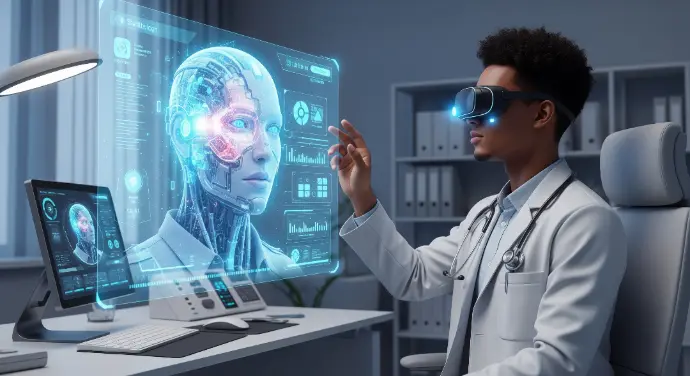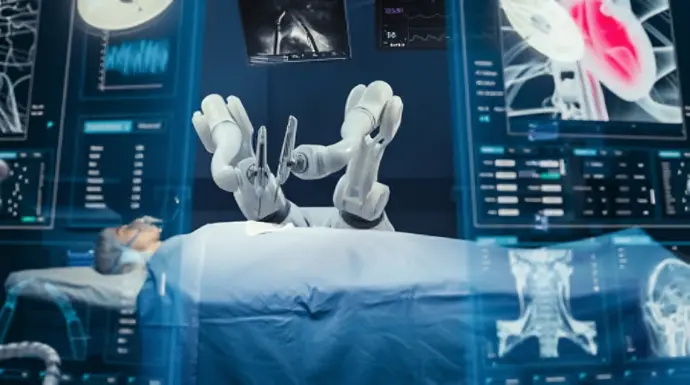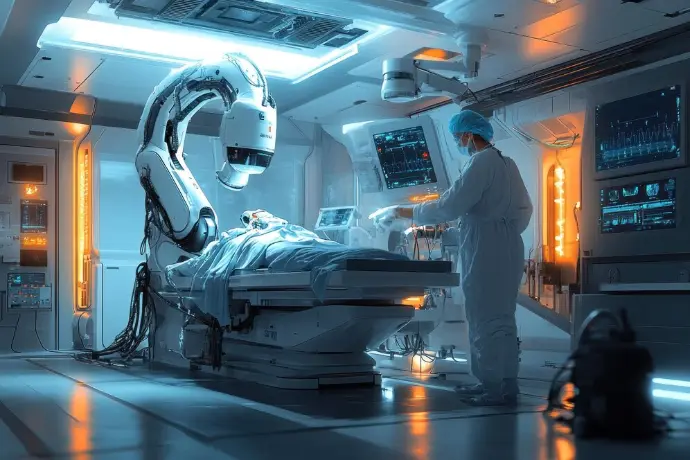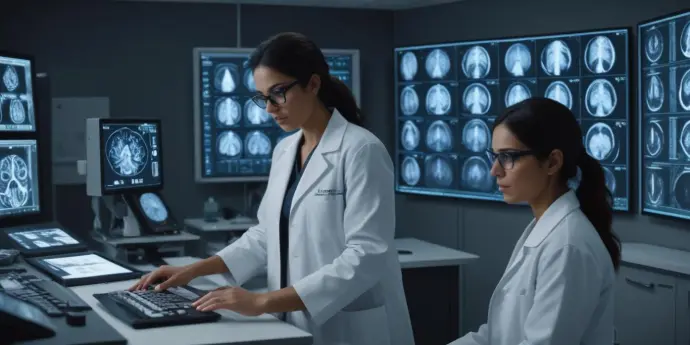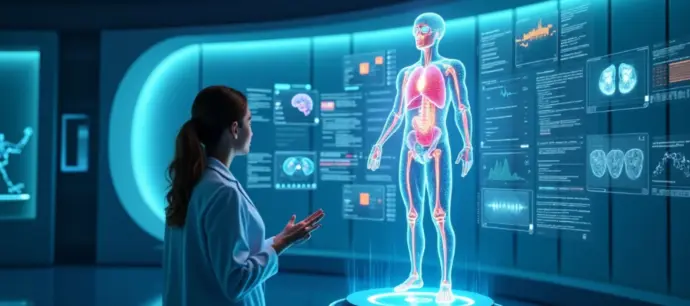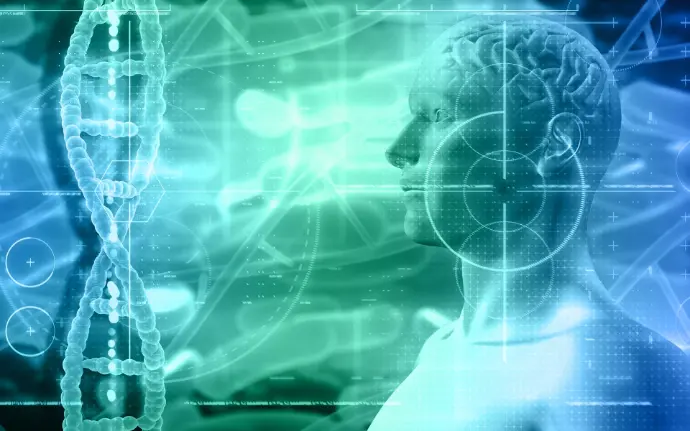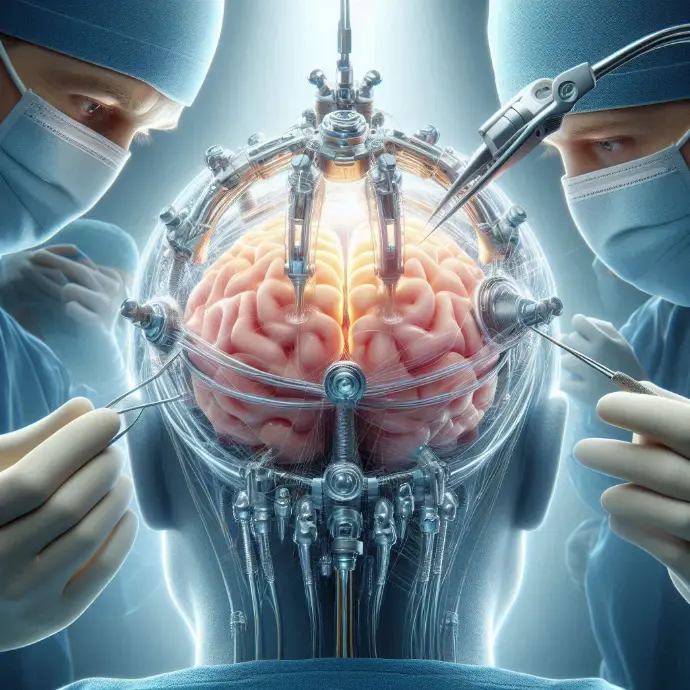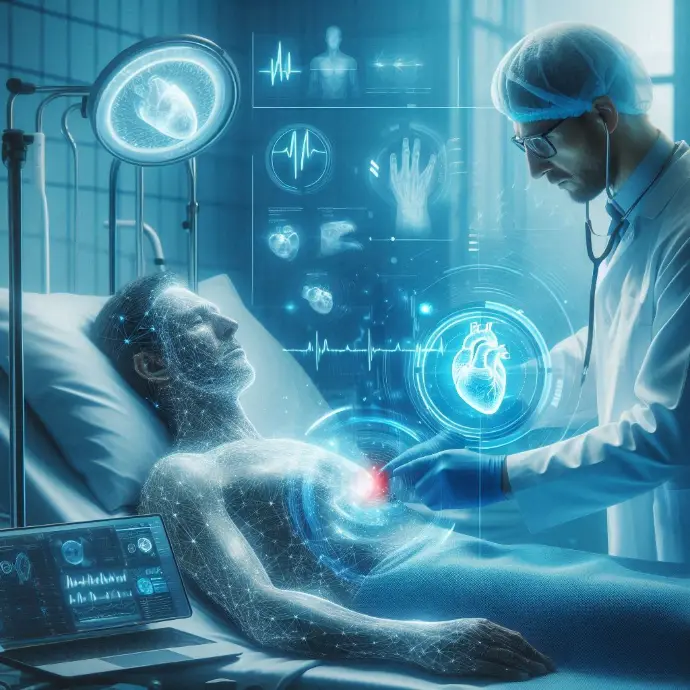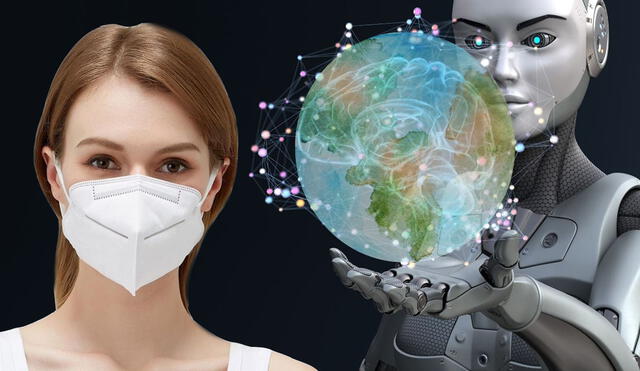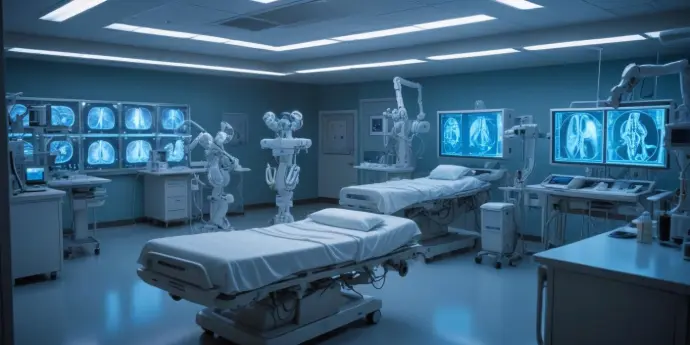Artificial Intelligence in Medical Health
What is artificial intelligence in medicine?
Artificial intelligence in medicine is the use of machine learning models to search medical data and discover insights that help improve health outcomes and patient experiences. Thanks to recent advances in computer science and informatics, artificial intelligence (AI) is quickly becoming an integral part of modern healthcare. AI algorithms and other AI-powered applications are used to assist medical professionals in clinical settings and in ongoing research.
Currently, the most common roles of AI in medical settings are clinical decision support and image analysis. Clinical decision support tools help providers make decisions about treatments, medications, mental health, and other patient needs by giving them quick access to information or research that is relevant to their patient. In medical imaging, AI tools are being used to analyze CT scans, X-rays, MRIs, and other images for lesions or other findings that a human radiologist might miss.
The challenges that the COVID-19 pandemic created for many healthcare systems also led many healthcare organizations around the world to begin field-testing new AI-enabled technologies, such as algorithms designed to help monitor patients and AI-powered tools to assess COVID-19 patients.
The research and results of these tests are still being collected, and general standards for using AI in medicine are still being defined. However, the opportunities for AI to benefit physicians, researchers, and the patients they care for are steadily increasing. At this point, there is little doubt that AI will become a central part of the digital healthcare systems that shape and support modern medicine.
Applications of AI in Medicine
There are numerous ways that AI can positively impact the practice of medicine, whether by speeding up the pace of research or helping doctors make better decisions. Below are some examples of how AI could be used:
- AI in disease detection and diagnosis
Unlike humans, AI never needs to sleep. Machine learning models could be used to watch the vital signs of patients receiving intensive care and alert doctors if certain risk factors increase. While medical devices like heart monitors can track vital signs, AI can collect the data from those devices and look for more complex conditions, such as sepsis. An IBM client has developed a predictive AI model for premature babies that is 75% accurate at detecting severe sepsis.
- Personalized disease treatment
Precision medicine could be easier to support with virtual AI assistance. Because AI models can learn and retain preferences, AI has the potential to provide real-time, personalized recommendations to patients around the clock. Instead of having to repeat information with a new person every time, a healthcare system could offer patients 24-hour access to an AI-powered virtual assistant who could answer questions based on the patient’s medical history, preferences, and personal needs.
- AI in Medical Imaging
AI is already playing a prominent role in the area of medical imaging. Research has indicated that AI powered by artificial neural networks can be as effective as human radiologists at detecting signs of breast cancer and other conditions. In addition to helping doctors detect early signs of the disease, AI can also help make the staggering amount of medical images that doctors must sift through more manageable by detecting vital parts of a patient’s history and presenting them with the relevant images.
- Clinical Trial Efficiency
During clinical trials, a lot of time is spent assigning medical codes to patient outcomes and updating relevant data sets. AI can help speed up this process by providing faster, smarter medical code searching. Two IBM Watson Health clients recently found that AI could reduce the number of medical code lookups by more than 70%.
- Accelerated development
Drug discovery is often one of the longest and most expensive parts of drug development. AI could help reduce the costs of developing new drugs in two main ways: better drug designs and finding promising new drug combinations. With AI, many of the big data challenges facing the life sciences industry could be overcome.
Benefits of AI in Medicine
Informed Patient Care
Integrating medical AI into physician workflows can give providers valuable context as they make decisions about care. A trained machine learning algorithm can help reduce research time by giving physicians valuable search results with evidence-based information about treatments and procedures while the patient is still in the room with them.
Reducing errors
There is some evidence that AI can help improve patient safety. A recent systemic review of 53 peer-reviewed studies examining the impact of AI on patient safety found that AI-powered decision support tools can help improve error detection and medication management.

How to reduce the cost of healthcare
There are many potential ways that AI could reduce costs in the healthcare industry. Some of the most promising opportunities include reducing medication errors, providing personalized virtual health care, preventing fraud, and supporting more efficient clinical and administrative workflows.
Improving the doctor-patient relationship
Many patients think about questions outside of regular business hours. AI can help provide around-the-clock support through chatbots that can answer basic questions and provide resources to patients when their provider's office isn't open. AI could also be used to triage questions and flag information for further review, which could help alert providers to health changes that need further attention.
How to provide contextual relevance
One of the key advantages of deep learning is that AI algorithms can use context to distinguish between different types of information. For example, if a clinical note includes a list of a patient’s current medications along with a new medication recommended by their provider, a well-trained AI algorithm can use natural language processing to identify which medications belong in the patient’s medical history.

 IHRO NEWS
IHRO NEWS